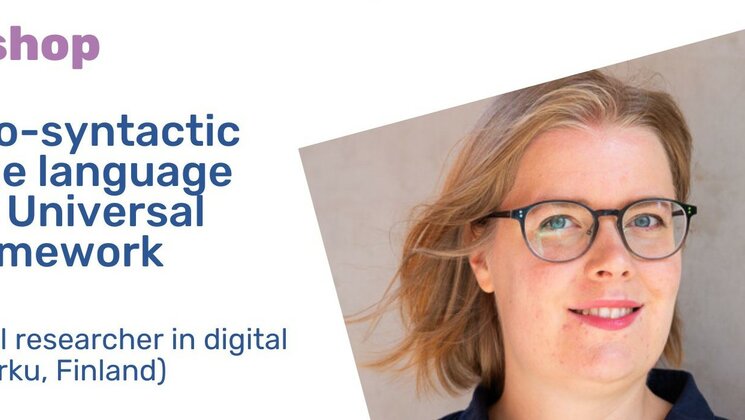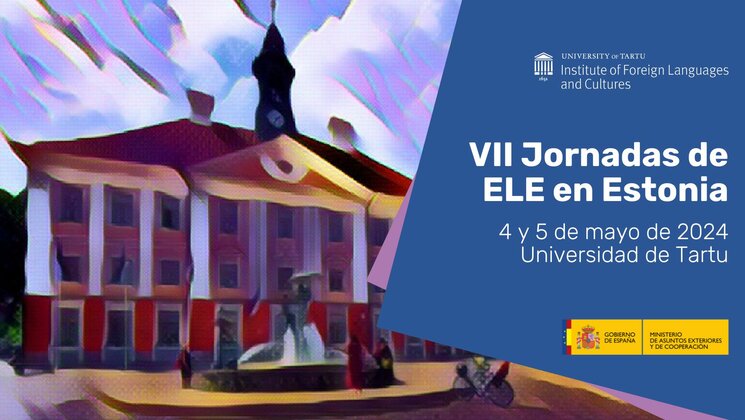Linguistics
Our main focus is applied linguistics, which entails the teaching and learning of foreign languages, contrastive linguistics, lexicography and corpus linguistics. Much of the linguistic research carried out at our college is driven by the practical need to develop new teaching materials for foreign language acquisition, including academic writing. Many of our linguists are also active in creating corpora and compiling dictionaries. We study a wide variety of languages, including but not limited to English, French, German, Russian, Spanish, Scandinavian languages, Greek and Latin. Scholars of individual languages collaborate within the college and with scholars from neighbouring institutes. We share an empirical approach to solving linguistic problems by employing state-of-the-art research methods. Many of our scholars are involved in the digital humanities community.
Our research in applied linguistics entails research and applied work on language acquisition, mainly foreign language learning and teaching. Since one of the strengths of our college is its multilingualism, one strand of research focuses on the interaction between different languages in a multilingual system. Our researchers are also interested in the influence that our native language has on the learning of foreign languages and in language acquisition more generally. Many of our researchers are involved in practical applications related to teacher training and language teaching issues.
Selected publications:
- Armon-Lotem, S., Haman, W., Jensen de Lopz, K. Smoczynska, M., Yatsushiro, K., Szczerbinski, M., van Hout, A., Dabasinskiene, I., Gavarró, A., Hobbs, E., Kaman-dulyte, L., Katsos, N., Kunnari, S., Nitsidou-Michaelidou, Chr., Sundahl Olsen, L., Parramon, X., Sauerland, U., Torn-Leesik, R. and van der Lely, H. (2016). A Large-Scale Cross-linguistic Investigation of the Acquisition of Passive. Language Acquisition: A Journal of Developmental Linguistics, 23 (1), 27-−56.
- Kruse, Mari (2014). Võõrkeeleõpe kui sotsiaalne, sünergiline ja teadvustatud protsess. [Foreign language learning as a social, synergetic and conscious process.] Eesti ja soome-ugri keeleteaduse ajakiri / Journal of Estonian and Finno-Ugric Linguistics, 5 (3), 37−56.
Our college prides itself on its multilingualism and this provides a fertile ground for research on different topics related to contrastive linguistics. Our researchers collaborate closely with the Institute of Estonian and General Linguistics and there are many ongoing projects between linguists from different departments. The central focus is on taking a usage-based, functional approach to studying various language pairs. The following is a non-exhaustive list of the language pairs studied: Estonian-English, Estonian-German, Estonian-French, Estonian-Russian, Estonian-Spanish, Estonian-Swedish. The language pairs are mostly analysed from the synchronic perspective by taking a semasiological and/or onomasiological approach. Specific topics include rhythm, word stress, demonstratives, aspect, voice, tenses, modal verbs.
Selected publications:
- Kruse, Mari (2020). Palabras cognadas en el vocabulario académico del inglés, español y estonio. [Cognate words in the academic vocabulary of English, Spanish and Estonian] e-AESLA, 6, 253-266.
- Kupp-Sazonov, Sirje (2019). Deminutiivsete noomenite funktsionaalsusest vene ja eesti keeles mõningate Tšehhovi jutustuste ning nende tõlgete näitel. [On the functionality of diminutive nouns in Russian and Estonian using some A. Chekhov stories and their Estonian translations as examples] Lähivõrdlusi. Lähivertailuja, 29, 113−140.
- Treikelder, Anu; Amon, Marri (2018). The temporal uses of French devoir and Estonian pidama (‘must’). In: Ayoun, Dalila; Celle, Agnès; Lansari, Laure (Ed.). Tense, Aspect, Modality, and Evidentiality (41−64). Amsterdam: John Benjamins. (Studies in Language Companion Series; 197).
- Asu, Eva Liina (2017). Eestirootsi keele prosoodia tunnusjooni. [Some features of Estonian Swedish prosody] Mäetagused, 68, 9−26.
- Pajusalu, Renate; Kaska, Maret; Klaas-Lang Birute; Pajusalu, Karl; Treikelder, Anu; Vihman Virve-Anneli (2017). Characteristics of request formulation in Estonian, Finnish, French, Lithuanian and Russian. Language Typology and Universals, 70 (3), 455−488.
- Käsper, Marge (2016). 'Võima', 'saama' ja 'suutma' prantsuse modaalverbi 'pouvoir' vastetena. Võimalikkuse määratlemine ja rõhutamine eituses. [The verbs 'võima', 'saama' and 'suutma' as equivalents of the French modal verb 'pouvoir'. Definition and intensification of possibility in negation.] Eesti ja soome-ugri keeleteaduse ajakiri. Journal of Estonian and Finno-Ugric Linguistics (ESUKA – JEFUL), 7 (2), 75−92.
- Lõbus, Triin (2016). Võimalikkus hispaania keele modaalverbi poder ja eesti keele modaalverbide semantikas. Tõlkevastete analüüs. [Possibility in the semantics of the Spanish modal verb poder and the Estonian modal verbs saama and võima. Analysis of translation equivalents.] Eesti ja soome-ugri keeleteaduse ajakiri / Journal of Estonian and Finno-Ugric Linguistics, 7 (2), 125−158.
- Kupp-Sazonov, Sirje; Külmoja, Irina (2014). Grammatikakategooriate sekundaarsest kasutusest: vene ja eesti ajavormid. [On secondary use of grammatical categories: Russian and Estonian tense forms] Eesti Rakenduslingvistika Ühingu aastaraamat, 10, 177−192.
- Tammekänd, Liina (2015). Demonstratives in Võro and Estonian narratives. Eesti ja soome-ugri keeleteaduse ajakiri / Journal of Estonian and Finno-Ugric Linguistics, 6 (2), 191-216.
We work with languages in a multilingual environment, which entails usage-based research related to corpora of different languages, both written and spoken. Our corpus-linguistic research includes, for example, corpus-based studies of the passive in Danish, Norwegian and Swedish, present tense verbs in bilingual oral narratives, and constructional alternations in written Estonian. In addition to corpus-based research, our researchers are involved in compiling corpora of different types and languages. Some examples of the latter are the Tartu Corpus of Estonian Learner English (TCELE), the corpus of Old Believers’ Dialectal Speech Recordings, and an Estonian electronic text corpus of inscriptions in Latin.
Selected publications:
- Klavan, Jane (2020). Pitting corpus-based classification models against each other: a case study for predicting constructional choice in written Estonian. Corpus Linguistics and Linguistic Theory, 16 (2), 363−391.
- Klavan, Jane; Divjak, Dagmar (2016). The Cognitive Plausibility of Statistical Classification Models: Comparing Textual and Behavioral Evidence. Folia Linguistica, 50 (2), 355−384.
- Tammekänd, Liina (2015). Present verbs and their contexts in bilingual oral narratives. Eesti ja soome-ugri keeleteaduse ajakiri / Journal of Estonian and Finno-Ugric Linguistics, 6 (3), 215−236.
- Laanemets, Anu (2013). The passive voice in spoken and written Danish, Norwegian and Swedish: A comparative corpus-based study. Languages in Contrast, 13 (1), 67−89.
Text and discourse studies carried out at our college directly relate to the multilingual environment that our students and scholars work in. One of the prominent perspectives taken is the contrastive and comparative study of different discourse styles in different cultures and languages. For example, our researchers have extensively worked on the different discourse practices in Estonian, English and French texts. Another major strand of research in this field covers academic writing. Our researchers have looked into the differences between academic writing in Estonian and in English (L2 English academic writing), between Estonian and French academic genres and in Spanish as L3 academic writing. Finally, another strand of discourse studies analyses the representation of social issues in everyday interaction and media discourse.
Selected publications:
- Kriisa, Kaidi (2019). Some examples of multilingual practices in the academic texts of the Early Modern Academia Dorpatensis (1632–1710). In: Facetten der Mehrsprachigkeit im 17. Jahrhundert. Tallinna Ülikool, 15 April 2019.
- Käsper, Marge (2019). Une particule évidentielle dialogale et les discours académiques. Juhani Härmä, Eva Havu, Hartmut Lenk, Begoña Sanroman, Elina Suomela-Härmä. Studies in Comparative Pragmatics (105−121). Cambridge Scholars Publishing.
- Roger M. A. Yallop; Djuddah A. J. Leijen (2018). The perceived effectiveness of written peer feedback comments within L2 English academic writing courses. Eesti Rakenduslingvistika Ühingu aastaraamat, 14, 247−271.
- Käsper, Marge; Marling, Raili (2018). Diskursuseanalüüsi muutuv suhe kvantifitseerimisega inglis- ja prantsuskeelses traditsioonis. Keel ja Kirjandus, LXI (8-9), 728−746.
- Leijen, Djuddah (2017). A Novel Approach to Examine the Impact of Web-based Peer Review on the Revisions of L2 Writers. Computers and Composition, 43, 35−54.
- Käsper, Marge (2016). Structuration évoquée et pratiquée dans les comptes rendus de lecture. Les usages de la linéarité en perspectives contrastives. Journal of Academic Writing, 6 (1), 205−221.10.18552/joaw.v6i1.329.
- Ehala, Martin; Kerge, Krista; Lepajõe, Kersti; Sõrmus, Kadri (2015). Kõrgkoolide üliõpilaste eesti keele oskuse tase. Kordusuuring. Uuringu kokkuvõte. Tartu Ülikool.
Team:
- Jane Klavan
- Mari Kruse
- Marge Käsper
- Irina Külmoja
- Raili Marling
- Merje Miliste
- Liina Tammekänd
- Reeli Torn-Leesik
- Anu Treikelder
- Enn Veldi
- Natalja Zagura



